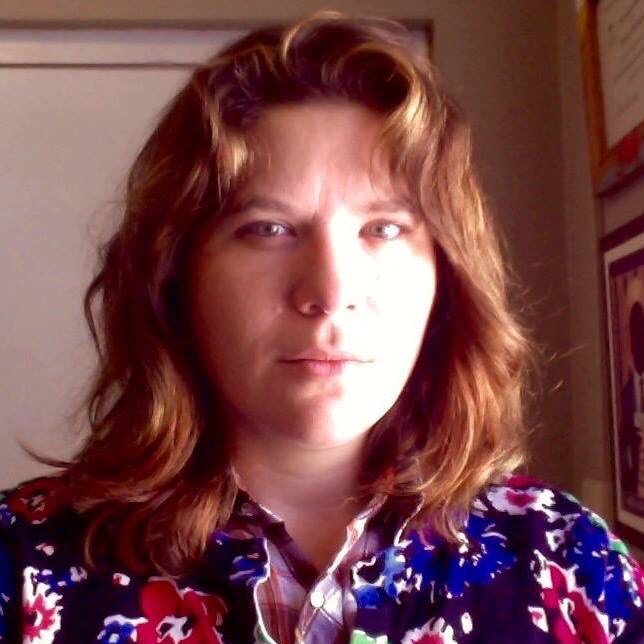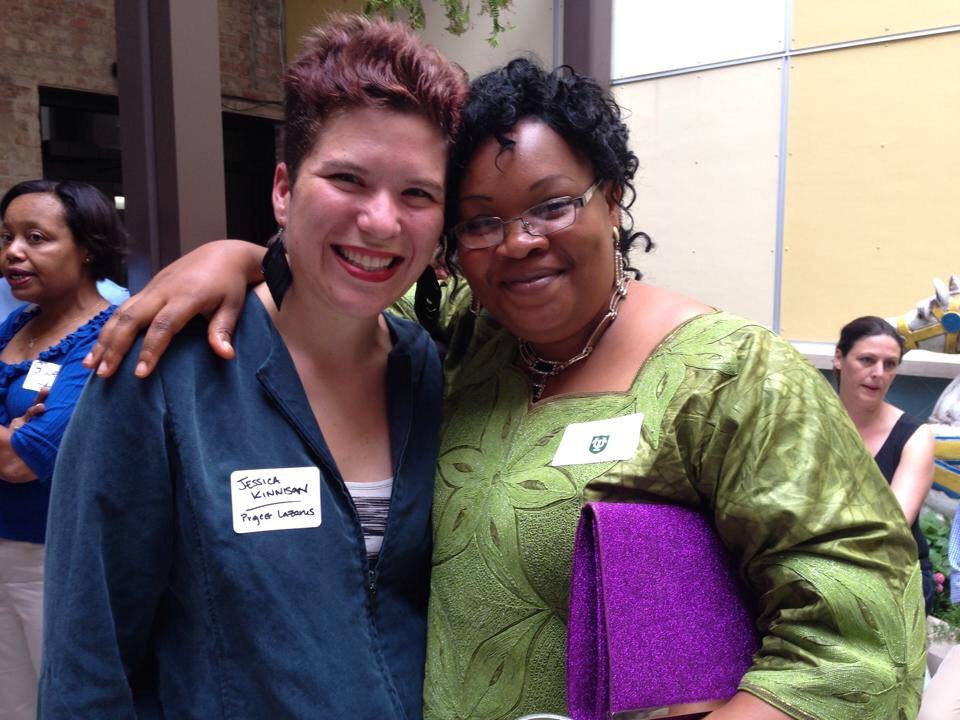
Jessica Kinnison, Director of Programs at Lazarus Project (photos provided by: Lazarus Project)
For over 30 years, local non-profit Project Lazarus has been helping and providing transitional housing for men and women in New Orleans living with HIV and AIDS. It was started in 1985 in the upstairs of an old convent as a way to provide hospice care to homeless people with the virus during the peak of that decade’s crisis. The organization evolved over time into a multifaceted operation, now located on a campus of buildings and gardens with various programs and approaches to helping affected residents and clients.
“It’s changed a lot over the years,” says Jessica Kinnison, who started as an educator for the organization six years ago and is now the Director of Programs. “After [Katrina], we had a really innovative Executive Director, and we built out programs around national data related to people living with HIV. So we want to make sure we’re meeting those needs now.”
According to the CDC, annual HIV infections and diagnoses have been declining overall, but that progress is distributed unequally. Louisiana is second in the nation for AIDS cases (per 100,000 people) and third for high rates of HIV infections. New Orleans itself has consistently been in the top five metropolitan areas in the U.S. for new HIV diagnosis rates. Many of Project Lazarus’s clients are people of color from the community— particularly black men 35 to 55 who have never left New Orleans or possibly even their own neighborhood, says Kinnison.
There’s also the challenge of ongoing misconceptions and stigma surrounding the virus. “[The clients] still think of HIV as a plague…or something that’s not human or not good,” says Kinnison, adding that many of their clients are MSM or men who have sex with men. “In our community it’s tough to talk about sex and sexuality. So that’s a lot of what we work on… [Figuring] out how to talk about that and help them talk to their families and loved ones.”
“I think stigma is alive and well in New Orleans and we’re always trying to figure out how we can destigmatize our clients and help them to realize they can live a long healthy life,” says Kinnison. “And nobody needs to know about their status but them— but on the flip side they can be activists for themselves and for others.”

Community members of Project Lazarus (photos provided by: Project Lazarus)
On top of the housing programming, Project Lazarus developed an entirely new wing of social services focusing on programs such as substance abuse and medical case management in order to better meet the needs of their clients. One of the newest programs is the Wellness University, which Kinnison started a few years ago and is comprised of courses relating to life skills such as HIV 101, financial literacy, and, “Whatever somebody needs to know to get into permanent housing and stay there and feel comfortable.”
The other half is made up “electives,” as Kinnison calls them. “Philosophy, creative writing, photography, yoga— things about what it means to be alive and why I want to be alive.” She says one of her happiest moments was walking into a kitchen one day and hearing residents talking about the myth of Sisyphus while making sandwiches. “It opened up in ways I never would have guessed.”
There’s also the important After-Care Program that’s run by a professional counselor. “She goes on home visits to visit our former clients [to] make sure that they’re doing OK, [to] make sure they’re going to the doctor, paying the light bill…and just offering emotional support and showing that we still care.” They also invite former clients back to the organization’s yearly events, says Kinnison, of which there are many including the annual Halloween New Orleans that was started in 1983 and includes the famous Lazarus Ball and Saturday costume party.
There are also plenty of opportunities for volunteers to assist the non-profit. “We’re always in need of different types of skilled volunteers. One example I can think of right of the top of my head is we always need haircuts,” says Kinnison. They also have a list of donations that clients need regularly on their website. “Things like backpacks, umbrellas, clothing to wear to interviews, underwear,” she says, adding with a laugh, “You know— new underwear.”

Community members of Project Lazarus (photos provided by: Project Lazarus)
While Project Lazarus has always been an uplifting endeavor, Kinnison says it’s not always easy to deal with the issues ingrained in their work, especially the external ones that loom large in New Orleans and across the country. “The long term issues are harder to get your mind and heart around. I think homelessness in the city and the rising rent are unbelievable for our client who mostly have lived here since birth,” she says, continuing to say that,“the housing piece is especially tough since they have to leave us— we’re transitional housing. So finding [housing] for them can be hard. They had a lot stacked against them.”
While solutions to these problems aren’t easy, there’s satisfaction to be found in individual victories and overall progress. “Some of [our clients] we’ve known since the 80’s— which I’m really proud of, “ says Kinnison. “ Some of them were taking 16 pills in the morning, afternoon and evening, and now they’re taking one. So if we look at the HIV leg of things, I think it’s greatly improved.”
There’s also the importance of Project Lazarus being seen as a vibrant community that takes care of all its members whether you’re a resident or on staff. “We have a morning meeting on Monday and Friday where we all get together as a community and sometimes we meditate, sometimes we just breathe together and just voice our concerns, “ says Kinnison, “especially if there’s something going on in the world or if Pride Weekend is coming up and [someone’s] worried about trying to stay sober.”
“We’ll talk about that together as a community. So I think the community-minded aspect of Lazarus and the family kind of center of it makes you feel held— even when things are tough,” she says.
***
You can find more information about Project Lazarus at www.projectlazarus.net, as well as on Facebook. For information regarding programming, Jessica Kinnison can be reached at jkinnison@projectlazarus.net.
 NOLAbeings Multimedia artist Claire Bangser created NOLAbeings as a portrait-based story project that marries...
NOLAbeings Multimedia artist Claire Bangser created NOLAbeings as a portrait-based story project that marries...  Voodoo in New Orleans: Reviving history: New Orleans fortune telling This article takes a deep dive into the history of Voodoo in New Orleans, its hybridization with Catholicism, and its present-day place in the city's culture. The author visits fortune-tellers in the French Quarter, using their guidance as a tool for introspection rather than a deterministic predictor of the future. Through her experiences in New Orleans, the author feels a mystical connection to both the past and the future.
Voodoo in New Orleans: Reviving history: New Orleans fortune telling This article takes a deep dive into the history of Voodoo in New Orleans, its hybridization with Catholicism, and its present-day place in the city's culture. The author visits fortune-tellers in the French Quarter, using their guidance as a tool for introspection rather than a deterministic predictor of the future. Through her experiences in New Orleans, the author feels a mystical connection to both the past and the future. 